Reviews
Domicile conjugal
François Truffaut
France, 1970
Credits
Review by Victoria Large
Posted on 12 April 2010
Source Criterion Collection DVD
“This time don’t keep us waiting; I want to see those two young people married!” film archivist and New Wave mentor Henri Langlois famously told François Truffaut after the premiere of Stolen Kisses in 1968, referring to Truffaut’s cinematic doppelganger Antoine Doinel and his love interest Christine Darbon. Taking Langlois’ advice, Truffaut soon went to work on the fourth film in the Doinel cycle, Bed and Board, which opens with Christine running errands and correcting everyone who calls her “mademoiselle.” She’s now “madame.”
Coming so quickly on the heels of the fast and funny Stolen Kisses, Bed and Board is surprisingly leisurely in pace and downbeat in tone. While Stolen Kisses is grounded in reality but only just, existing as it does in a slightly frothy world of private detectives and romantic intrigue, Bed and Board at times recalls the stormy domestic relationships of The 400 Blows — only now it is Antoine himself who is the arguing husband. The discord between Antoine and Christine is jarring, and while each of the Doinel films bears more than a trace of sadness, with Bed and Board it feels as though a delicate balance has been tipped.
When we reacquaint ourselves with Antoine, he is still a bit adrift, dabbling as a florist while Christine gives violin lessons. He seemingly leads a life of small aspirations — like achieving “absolute red” when he dyes his flowers — and small victories, such as using gentle persuasion to remind the mother of one of Christine’s pupils to pay for a series of lessons. Happily, Truffaut’s attention to detail ensures that Antoine and Christine’s world is richly shaded even at its quietest: he crowds the couple’s quirky and sometimes nosy neighbors into the film’s edges, giving it the same sense of community that defines his 1976 film Small Change.
Still, it’s only when Christine becomes pregnant that the story really begins to move. The cracks in Antoine and Christine’s relationship become more apparent with the birth of their son. “I waited for this baby all by myself,” Christine tells Antoine after asking him to leave her bedside following the birth. They fight over the child’s name and fail to reach a compromise. (She wants Ghislain; he wants Alphonse. He registers the boy under the name he prefers without her knowledge.) It’s Antoine who finally delivers the marriage its most damaging blow when he has an affair with Kyoko, a Japanese woman who he meets through the job that he takes at an American hydraulics firm. But Truffaut subtly suggests the couple’s shared unhappiness throughout. A scene of the pair in bed finds Antoine reading a book about Japanese women, while Christine pores over a biography of her celebrity crush, Rudolf Nureyev. In their own separate ways, Antoine and Christine are indulging themselves in fantasies while the reality of their married life continues to disappoint them.
Antoine’s fantasies are of course more destructive, because they are acted upon, and because they involve the feelings of not one but two flesh-and-blood women. (The closest Christine gets to Nureyev is the 8x10” glossy that she amusingly keeps behind Antoine’s photo by her bed.) His fantasies are also more troubling because they are tangled up in his attraction to Kyoko as the Other, and in western culture’s history of fetishizing the east. By design, Kyoko doesn’t register much as a character. She speaks little French and Antoine scarcely knows any Japanese; their cultural gap seems to be both what attracts Antoine and what repels him. (“Kyoko is another world!” Antoine will later argue in his own defense when Christine discovers the affair.) That gap also creates some of the film’s most uncomfortable moments, including an unfortunately stereotypical exchange where Kyoko tells Antoine, “If I commit suicide with someone, I’d like it to be you,” and a later instance in which Christine makes a racially charged comment in reference to the affair. Kyoko gets the last laugh, resisting Antoine’s attempts to idealize her (much as Mme. Tabard must in Stolen Kisses) and leaving him a break-up note that simply reads “DROP DEAD.” But by then Antoine has already broken his trust with Christine, and perhaps with the audience as well — it’s never more difficult to sympathize with Antoine than when he sets out on his wrongheaded affair in this film.
Why does Antoine disappoint us so in Bed and Board? Perhaps because he is at last in a position to provide his own offspring the loving home he never had, and instead he remains something of a boy. His romantic streak has been an endearing quality throughout the series, but now it comes at a cost, and he’s old enough to know better. (Ever since Antoine and Colette, Antoine has been insinuating himself into the lives of his girlfriend’s parents, hoping to be adopted. Bed and Board finds Antoine delivering the self-aware line, “I like a girl with nice parents,” for the first time; he will repeat the statement in Love on the Run.) Now that Antoine is about to become a father, it seems he should be taking time to reassess, but there’s little indication that he does. It’s a bit odd that Truffaut doesn’t explore this aspect of the story more deeply, and it may represent a missed opportunity.
Antoine’s signature flightiness may be what ultimately dooms his relationship with Christine. While Jean Pierre Léaud plays Antoine as a frustratingly contradictory creature — serious enough to be working on an autobiographical novel, but silly enough to be operating mechanical boats as day job, a bundle of selfish neuroses whose charm is threatening to wear thin — Claude Jade anchors the film as the mature, clear-eyed Christine. “I’m not like you,” she tells Antoine, “I don’t like things fuzzy and vague and ambiguous. I like things to be clear.” While Christine is the steadier character, Jade ensures that she isn’t dull, and small moments, such as when she defiantly breaks into a chocolate bar after a fight with Antoine, a tear rolling down her cheek, linger in the mind as humorous, heartbreaking, and human. “You’re my little sister, my daughter, my mother,” Antoine sputters, perpetually confused when it comes to family. Jade’s Christine calmly replies that she only wanted to be his wife, getting at the heart of a troubled relationship.
Truffaut swore at one time that Bed and Board would be the last of the Doinel films, and it would have made for a compelling but somewhat bitter finale. As a fan, I’m grateful for the slighter, but more buoyant, coda provided by 1979’s Love on the Run. Perhaps I can’t deny having a bit of a romantic streak myself.
More Love on the Run: The Films of François Truffaut
-

Les Mistons
1957 -

Une histoire d’eau
1958 -

The 400 Blows
1959 -
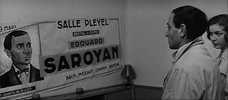
Shoot the Piano Player
1960 -
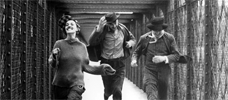
Jules and Jim
1962 -
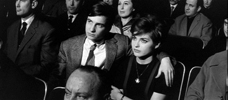
Antoine and Colette
1962 -
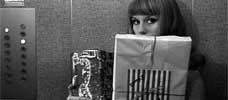
The Soft Skin
1964 -

Fahrenheit 451
1966 -
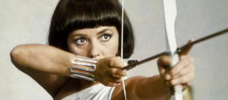
The Bride Wore Black
1968 -

Stolen Kisses
1968 -

Mississippi Mermaid
1969 -
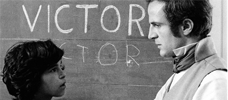
The Wild Child
1970 -
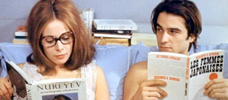
Bed and Board
1970 -

Two English Girls
1971 -
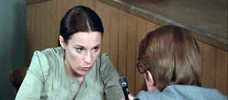
Such A Gorgeous Kid Like Me
1972 -

Day for Night
1973 -

The Story of Adele H.
1975 -

Small Change
1976 -

The Man Who Loved Women
1977 -

The Green Room
1978 -

Love on the Run
1979 -

The Last Metro
1980 -
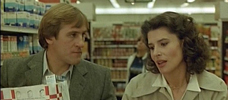
The Woman Next Door
1981 -
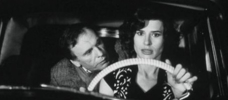
Confidentially Yours!
1983
We don’t do comments anymore, but you may contact us here or find us on Twitter or Facebook.



